Younger generation gravitates to green initiatives
At a seminar on promoting solutions for reducing single-use plastics on July 30, Nguyen Bang Lang, corporate sustainability and external relations manager at AEON Vietnam, said throughout their campaigns, many young consumers have participated.
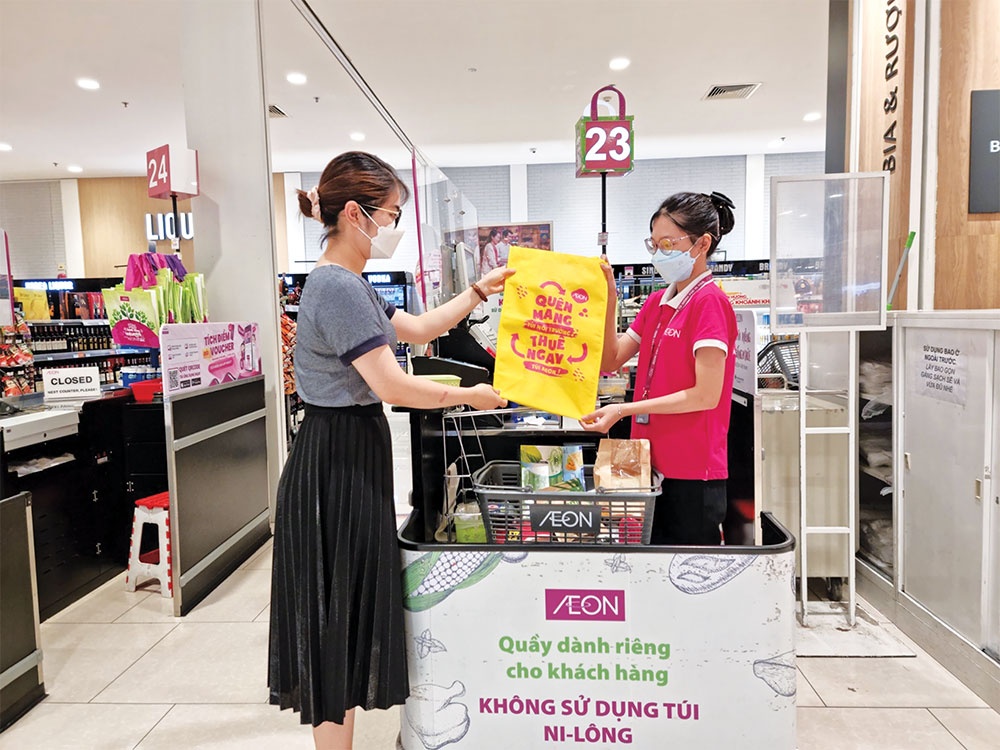 |
| AEON has created special checkouts and rent schemes to limit plastic waste |
“Most supermarket shoppers are office workers, housewives, and older adults aged 50-60. However, when they visited supermarkets involved in the campaign, they often brought their children or grandchildren, which helped extend the campaign’s message to younger generations,” Lang said.
In July, AEON Vietnam organised various activities to provide engaging and beneficial experiences, such as mini-games with questions and answers about knowledge related to plastic waste.
The retailer has also been renting out eco-friendly bags with a refund upon return. As of July, the initiative has reached 7 per cent of transactions avoiding disposable plastic bags, a significant increase from 0.5 per cent in April 2020, when the programme was first launched.
Supermarkets within AEON Vietnam’s retail system are also continuing with green initiatives like the Greenline priority checkout for customers who refuse plastic bags, and using paper cups and sugarcane pulp trays and bowls in the self-service dining area.
According to AEON Vietnam’s assessment, young consumers significantly amplify the programme’s message through social media campaigns. Meanwhile, older customers tend to practice the campaign more consistently at supermarkets.
Jens Kuitert, a representative of the Dutch Embassy in Vietnam, said at the seminar, “I feel the younger generation adapts to changes more easily. They find information online and discuss it among themselves, which helps them remember it. In contrast, the older generation takes longer to adapt. Initially, the only options were to pay extra or use reusable items, leading to complaints for about a month before they accepted the situation.”
Duong Thi Bao Ngoc, a core member of the Green Eyes – Youth for the Environment project under the For Vietnamese Stature Foundation said, “Gen Z is more aware of the environmental impact of plastic packaging and often chooses eco-friendly products. They had many early opportunities to learn about climate change and plastic pollution, giving them a better understanding than previous generations.”
Gen Z frequently opts for products with biodegradable, recyclable, or reusable packaging and supports brands committed to environmental protection, Ngoc said, and this shift in consumption habits indicates a positive movement towards a more sustainable future.
Young people also prefer minimalist, non-plastic, or recycled packaging. Many have altered their shopping habits by bringing cloth bags, avoiding plastic straws, and choosing biodegradable packaging. They support and encourage brands to reduce plastic waste and are willing to pay more for eco-friendly products.
“Young consumers are also very interested in alternative products to plastic bags introduced at the event. They enjoy exploring new products, especially environmentally friendly ones such as cloth bags, recycled paper bags, and other biodegradable packaging,” Ngoc said. “The campaign received enthusiastic support from young consumers, reflected in their active participation and interest in alternative products to plastic bags.”
As awareness of plastic waste’s impact grows, Gen Z is likely to prioritise environmentally friendly products and adopt more sustainable consumption habits. Technological advancements and innovation in production will also provide more sustainable alternatives, making it easier for Gen Z to maintain a green lifestyle.
According to Kantar’s 2023 Sustainable Consumer Market Report, the market is valued at $456 billion and is expected to continue growing, potentially reaching a trillion-dollar level by 2028.
The survey indicates that the number of eco-actives (consumers highly concerned about environmental issues, feeling responsible for the environment, and prioritising eco-friendly brands) has increased by 22 per cent. The number of eco-considerers, identified as consumers worried about environmental issues but whose purchasing decisions are still heavily influenced by convenience and price, has risen by 30 per cent.
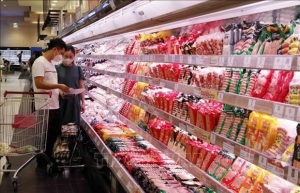 | Japanese retailer AEON to join Vietnam International Sourcing 2024 As the demand for Vietnamese agricultural products and processed foods is rising, Japan’s retailer AEON TopValu will seek suppliers for its supermarket chain Aeon at the Vietnam International Sourcing 2024, which is slated for June 6-8 in Ho Chi Minh City. |
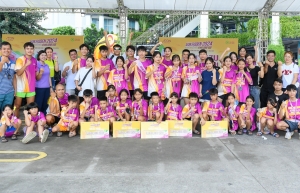 | AEON Vietnam kicks off AEON Ekiden 2024 Building on the success of the past two years, AEON Ekiden combined with the Vietnam-Japan Cultural Festival has kicked off its third running event, attracting nearly 3,000 participants. |
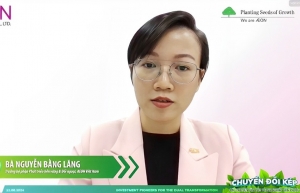 | AEON Vietnam strives to promote green consumption Retail corporation AEON Vietnam has significantly contributed to promoting green consumption through various activities related to green transformation and accelerating digital methods. |
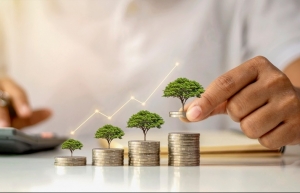 | Green credit initiatives urged to push ahead development Given stringent domestic capital mobilisation, Vietnam’s banks are turning into international financial institutions for growth expansion, particularly to strengthen their sustainable and environmentally friendly loan portfolios. |
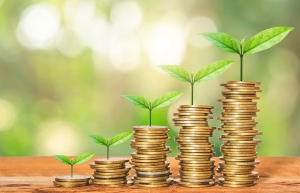 | Green credit initiatives highlight positive advances New insights have been revealed into the sustainable debt market in Vietnam and ASEAN more broadly, showing diversification and government support for sustainable finance. |
What the stars mean:
★ Poor ★ ★ Promising ★★★ Good ★★★★ Very good ★★★★★ Exceptional
Related Contents
Latest News
More News
- Trung Nam-Sideros River consortium wins bid for LNG venture (January 30, 2026 | 11:16)
- Vietnam moves towards market-based fuel management with E10 rollout (January 30, 2026 | 11:10)
- Envision Energy, REE Group partner on 128MW wind projects (January 30, 2026 | 10:58)
- Vingroup consults on carbon credits for electric vehicle charging network (January 28, 2026 | 11:04)
- Bac Ai Pumped Storage Hydropower Plant to enter peak construction phase (January 27, 2026 | 08:00)
- ASEAN could scale up sustainable aviation fuel by 2050 (January 24, 2026 | 10:19)
- 64,000 hectares of sea allocated for offshore wind surveys (January 22, 2026 | 20:23)
- EVN secures financing for Quang Trach II LNG power plant (January 17, 2026 | 15:55)
- PC1 teams up with DENZAI on regional wind projects (January 16, 2026 | 21:18)
- Innovation and ESG practices drive green transition in the digital era (January 16, 2026 | 16:51)

 Tag:
Tag:




















 Mobile Version
Mobile Version